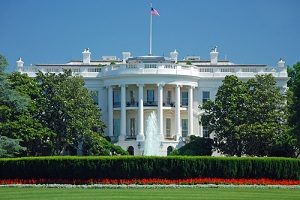A Different Way to Protect Congressional Whistleblowers

Government whistleblowers have taken a beating these last few weeks, in particular at the hands of both President Trump and Senator Rand Paul in the course of the impeachment trial. But whistleblowers may have some potent ways to fight back.
First, throughout the short duration of the impeachment trial, Senator Rand Paul used his soapbox both in and out of Senate chambers to loudly proclaim the alleged name of the still-anonymous whistleblower, whose internal report regarding President Trump’s withholding of military aid to Ukraine started the impeachment proceedings. This action led to an ethics complaint for violating Senate rules (and the law).
Next, as soon as the trial ended, President Trump retaliated against two of the prominent witnesses who testified under subpoena during the House impeachment proceedings. In what is now being called the “Friday Night Massacre,” President Trump fired Ambassador Gordon Sondland and removed Lieutenant Colonel Alexander Vindman (and, to add insult to injury, Lt. Col. Vindman’s brother) from the National Security Council, escorting both from the building as if they were criminals.
The President has left no doubt as to why he chose to fire these whistleblowers. The President’s son, Donald Trump Jr., proudly tweeted out a “thank you” to Representative Adam Schiff for helping identify which employees his father should fire. The President himself similarly tweeted that Lt. Col. Vindman was “insubordinate” by testifying to Congress under subpoena, leaving little doubt as to why he was removed from his position.
There is no doubt that both whistleblowers were harmed simply because they lawfully complied with congressional subpoenas. That is outrageous. It is also illegal.
There are numerous provisions designed to protect federal whistleblower generally. And there are distinct laws to safeguard against retaliation against witnesses. 18 U.S.C. 1513(e), one of the obstruction of justice statutes, criminalizes “any action harmful to any person, including interference with the lawful employment or livelihood of any person, for providing to a law enforcement officer any truthful information.” Naming a whistleblower has been accepted by numerous courts as a retaliatory action, justifying punishment. Federal employees that provide information to a law enforcement officer are as protected by this statute as any other cooperating witness.
While it is true that Lt. Col. Vindman was not fired outright, there is no question that he was subjected to harmful retaliatory action that interfered with his livelihood and employment. A demotion or reassignment (particularly accompanied by the unnecessary theatrics of the escort out the building) constitute such interference.
There is one other, little known federal law that reserves special punishment for federal employees or officers who interfere with congressional witnesses. Recognizing the importance of honest and complete testimony to Congress, the federal appropriations bill (that is, the annual budget) includes a provision that prohibits any appropriation to pay the salary of “any officer or employee of the Federal Government” who “prohibits or prevents, or attempts or threatens to prohibit or prevent” any federal employee from having “any direct oral or written communication or contact” with any member of Congress. That same provision dictates the same punishment for any federal officer who takes a retaliatory employment action against a congressional witness based on his or her testimony. Senator Chuck Grassley, a Senate Republican and vocal supporter of whistleblower rights, reminded then-Attorney General Jeff Sessions of this provision recently in an effort to protect congressional whistleblower.
Federal statute thus creates an immediate penalty for anyone who takes any action to interfere with a whistleblower from communicating with Congress. The act is broad in scope and language, showing congressional intent to widely protect government whistleblowers.
And, by the clear terms of the statute, President Trump is a federal officer. Senator Paul, of course, is as well.
So how would this work? The appropriations law does not specify who exactly has the ability to bring an action to take away a salary. No court has directly considered the question, although at least one has contemplated that such an action could be brought by the congressional witness (so in this case, Amb. Sondland, Lt. Col. Vindman, or the still anonymous Ukraine whistleblower). Because this would be an action solely concerning congressional appropriations and not civil or criminal liability per se, any claim to Presidential immunity (which President Trump and his attorneys interpret unusually broadly) would be irrelevant.
Such an action might be largely symbolic, as President Trump proclaims to donate his Presidential salary. But the symbolism should not be lost. Congress intended to use every means available to protect congressional witnesses from the common forms of retaliation experienced by far too many whistleblowers. Publicly taking away the salary of the President, who currently is acting as if he is above the law, would send a clear message to all future congressional witnesses and whistleblowers that Congress will have their back. Given the unlikelihood that the President Trump will face additional impeachment charges, this may be most powerful way for Congress to rein in his actions and protect those witnesses who are willing to come forward and tell the truth.
Tagged in: Importance of Whistleblowers, Retaliation, Whistleblower Protection Laws,